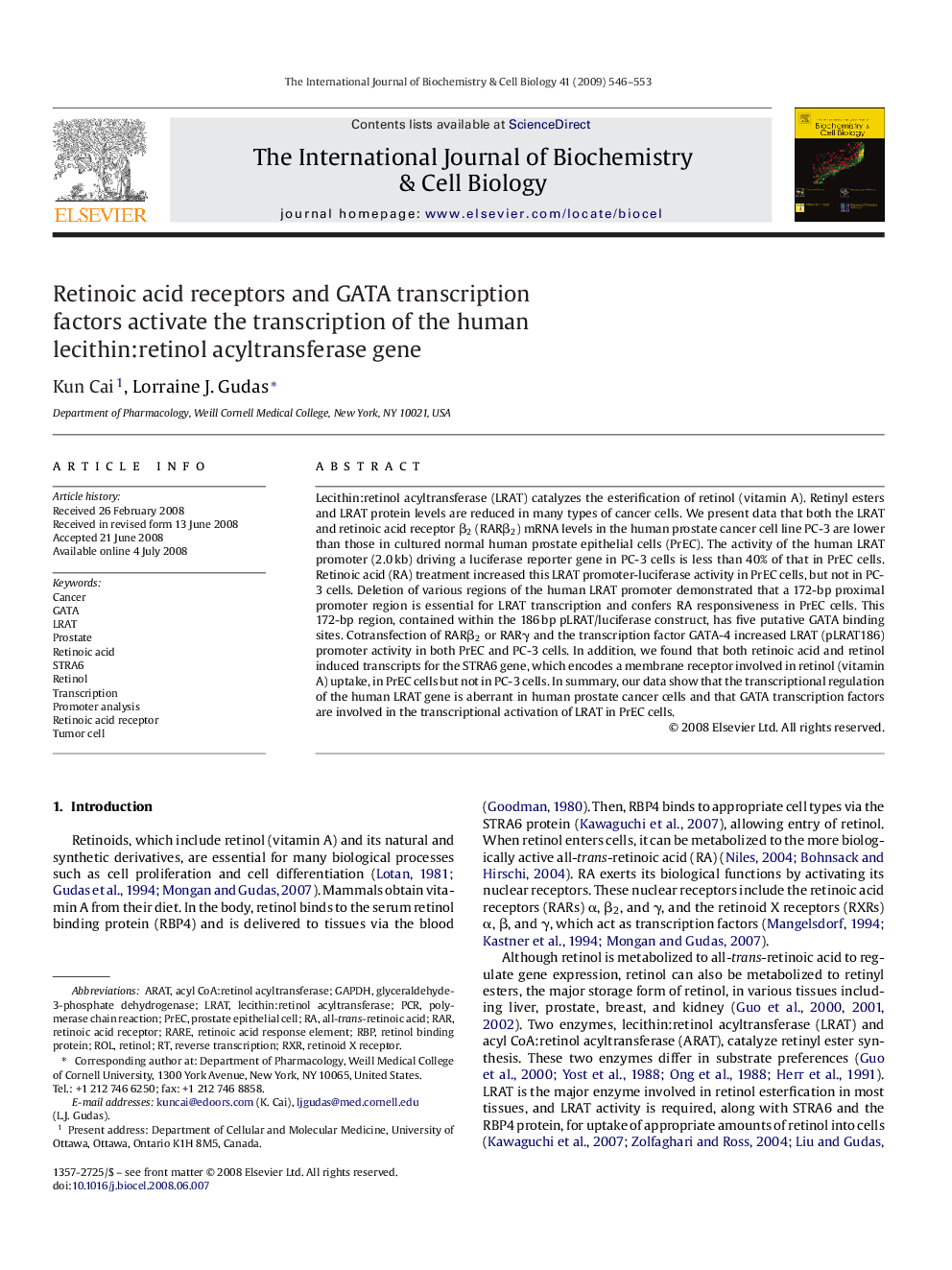| Article ID | Journal | Published Year | Pages | File Type |
|---|---|---|---|---|
| 8326132 | The International Journal of Biochemistry & Cell Biology | 2009 | 8 Pages |
Abstract
Lecithin:retinol acyltransferase (LRAT) catalyzes the esterification of retinol (vitamin A). Retinyl esters and LRAT protein levels are reduced in many types of cancer cells. We present data that both the LRAT and retinoic acid receptor β2 (RARβ2) mRNA levels in the human prostate cancer cell line PC-3 are lower than those in cultured normal human prostate epithelial cells (PrEC). The activity of the human LRAT promoter (2.0 kb) driving a luciferase reporter gene in PC-3 cells is less than 40% of that in PrEC cells. Retinoic acid (RA) treatment increased this LRAT promoter-luciferase activity in PrEC cells, but not in PC-3 cells. Deletion of various regions of the human LRAT promoter demonstrated that a 172-bp proximal promoter region is essential for LRAT transcription and confers RA responsiveness in PrEC cells. This 172-bp region, contained within the 186 bp pLRAT/luciferase construct, has five putative GATA binding sites. Cotransfection of RARβ2 or RARγ and the transcription factor GATA-4 increased LRAT (pLRAT186) promoter activity in both PrEC and PC-3 cells. In addition, we found that both retinoic acid and retinol induced transcripts for the STRA6 gene, which encodes a membrane receptor involved in retinol (vitamin A) uptake, in PrEC cells but not in PC-3 cells. In summary, our data show that the transcriptional regulation of the human LRAT gene is aberrant in human prostate cancer cells and that GATA transcription factors are involved in the transcriptional activation of LRAT in PrEC cells.
Related Topics
Life Sciences
Biochemistry, Genetics and Molecular Biology
Biochemistry
Authors
Kun Cai, Lorraine J. Gudas,
